Autumn Beginners Neurofeedback Workshop
We do not have any plans to run any workshops for now… Sorry
Cost:
£150 a day or £450 for the 3 days.
Discount for Members of the:
British Neuroscience Association (BNA) or Society of Applied Neuroscience (SAN): £425 for the 3 days.
Student Registration: £400 for the 3 days.
Topics will include:
EEG frequencies and waveforms
The neural anatomy of attention and arousal
The international 10-20 electrode placement system
Intake/assessment procedure for protocol selection
and running a session with practical hands-on experience
This workshop will be suitable for beginners to the field of Neurofeedback. It will cover a brief history of the field, relevant brain anatomy, physiology and function, and practical hands-on experience in running a neurofeedback session.
We will meet around 9:30 am to start for 10am and go till 5:30/6pm,
(We understand that people can have a long way to travel, so we try not to put the important stuff at the beginning and end of the day)
Objectives:
Participants will learn:
The basics of neuronal dynamics, cortical rhythms, and neuronal generators, which together give us insight into neural connectivity.
The arousal model of neurofeedback and how to measure optimal and sub-optimal arousal.
How to recognize specific brain wave dysregulations in clinical practise (e.g. Bipolar depression, Anxiety and Panic Attacks, Schizophrenia, Insomnia etc.) and in educational settings (AD/HD, Dyslexia, Autism, Developmental Co-ordination Disorder, Reactive Attachment Disorder, etc) will be described with up-to-date research and theories. Studies presenting the practise and efficacy of Neurofeedback in all these conditions will be presented. Some psychometric tests to aid assessment will be explained and handed out.
How to deal with common applications beyond the arousal model – such as Head injury, Stroke, Epilepsy, Sociopathy, Delinquency, Pain, Fibromyalgia, Bruxism, Eating Disorders, Memory problems, Addictions, Dementia etc. Many of these conditions will require a Quantitative EEG (see advanced course) as a necessary part of the assessment before neurofeedback protocols can be developed for their treatment. Some of these conditions require a different kind of neurofeedback (e.g. alpha-theta), which will be briefly explained but also belongs to the advanced neurofeedback course material.
How to look beyond the deficit model – peak-performance in Sports, Music and Drama, Cognitive enhancement and Creativity, Hypnosis and Immune system enhancement for long term illness.
How to use neurofeedback equipment; Nexus, EEGspectrum, BrainMaster, PET, and other equipment will all be displayed and explained but initially all practise will be on a simple hand held model that will give participants a real knowledge and ability to measure and manipulate; frequency, amplitude, power and training curves. A short explanation of Coherence, Phase, Comodulation, Synchrony and Assymetry and ‘Z’ score training etc. will be presented but these more sophisticated neurofeedback methods also belong to the advanced course.
Outcomes:
At the completion of this course certified by The Society for Applied Neuroscience, participants will be able to:
Assess a client’s suitability for neurofeedback – this may include the use of psychometrics as well as a neurofeedback questionnaire, based on the arousal model and astructured interview, quantifying symptoms. Recognise when a potential client needs treatment other than neurofeedback.
Understand the basis of electrophysiological recording and know where the electrodes should be placed (the 10/20 system will be practised) and what preparation is needed.
Be able to run a neurofeedback session and describe the training curve.
Develop a symptom tracking progress report for use between sessions.
While recognising the power of neurofeedback, also understanding how motivation, conditioning, medication, expectations, diet and peer/other pressure can influence a good outcome.
Timetable:
We do try and stick to this timetable, but it does depend on people’s interests and backgrounds, as we do want to meet people’s needs and learning objectives. So we can’t always promise to be exactly on time.
Day 1
Session 1.1
Introduction to EEG Neurofeedback History, Biofeedback, Neurotherapy, Neuroimaging To Neurofeedback
Morning Break
Session 1.2
Learning, Conditioning, personality and Arousal Model
Lunch Break
Session 1.3
10-20, Demo of Neurofeedback session The international 10-20 electrode placement system
Afternoon Break
Session 1.4
EEG Normal and Abnormal
Day 2
Session 2.1
Intake assessment
Morning Break
Session 2.2
The Brain
Lunch Break
Session 2.3
Running a session – Hands On
Afternoon Break
Session 2.4
“Question and technical issues” Homework case studies
Day 3
Session 3.1
Protocols Theoretically Driven
Protocols Historically Driven
Protocols qEEG and mini-qEEG
Morning Break
Session 3.2
Current Applications:
Clinical: Attachment issues, stress and PTSD, depression, OCD, etc.
Educational: Dyslexia, Dyspraxia, ADHD/ADD, Autistic spectrum etc.
Peak performance: Optimal functioning, creativity, Personal and Home Use
Lunch Break
Session 3.3
Running a session – Hands On
Afternoon Break
Session 3.4
Technical and Hardware
Run By:
Dr Bev Steffert is an Psychologist, Neuropsychologist and Neurofeedback practitioner.
Dr Tony Steffert is a EEG technician, clinician and researcher in Neurofeedback, EEG and Sonification.
Contact:
Get In Contact With Us
[contact-form-7 id=”147″ title=”Contact form 1″]
Tony Steffert
47 c Christchurch Av
London, NW6 7BB
W: qeeg.co.uk
E: tony@qeeg.co.uk
P: + 44 (0) 7966 484 289
Skype ID: tonysteffert
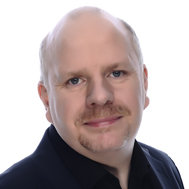
Location:
The Open University
London Regal Office
1-11 Hawley Crescent
London, NW1 8NP
Getting There:
By Tube:
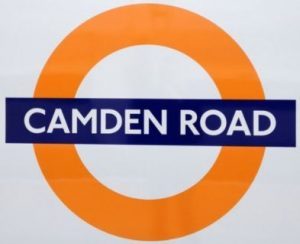
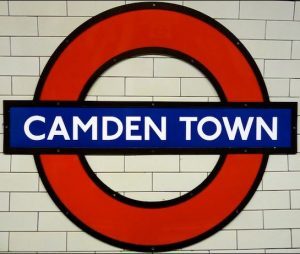
Camden Town Underground station is on the Northern Line (The black line) and Camden Road is on the London Overground (The Orange line).
They are both a short walk from the Open University Camden Centre.
By Buses:
C2, 24, 27, 29, 31, 46, 88, 134, 168, 214, 253, 274
See Transport for London journey planner Website for more information (TFL).
By Car:
There is no parking available at the OU regional centre. Although there is one Blue badge parking space in the basement and one just outside by the main entrance.
There is limited metered parking in the area.
There is plenty of parking garages but it is expensive.
See Parkopedia for more information
Accommodation:
Holiday Inn London
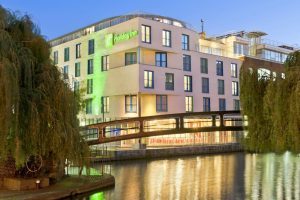
Camden Lock
30 Jamestown Road,
London, NW1 7BY
020 7485 4343
Britannia Hampstead Hotel
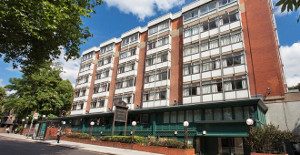
Primrose Hill Road,
Hampstead,
London, NW3 3NA
0871 222 0043
This is an 20 minute walk to the OU
Camden Enterprise Hotel
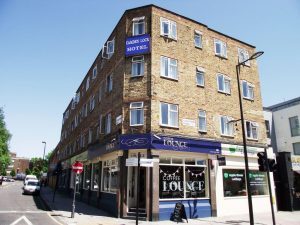
Camden
89 Chalk Farm Road
London, NW1 8AR
020 7267 3912
This is an 11 minute walk to the OU
Premier Inn
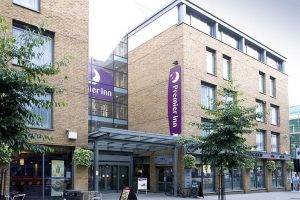
London Kings Cross St Pancras
88 Euston Rd,
London, NW1 2RA
+44 871 527 9492
This is a 30 minute walk
